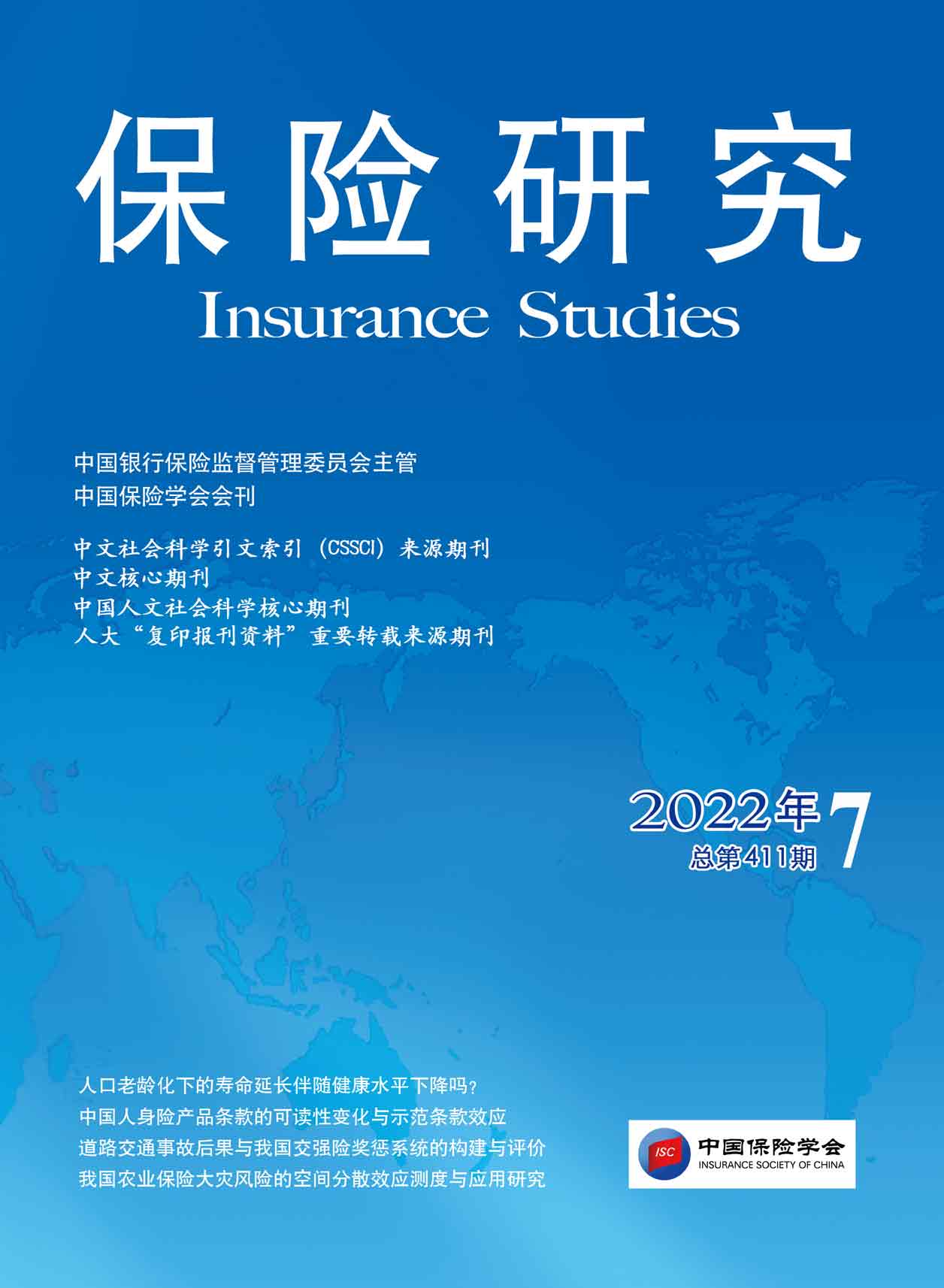
《保险研究》20220708-《医保支付方式改革与医疗服务供给——来自四川省A市医保总额控制的证据》(袁洛琪、何庆红、秦雪征)
[中图分类号]F840.684 [文献标识码]A [文章编号]1004-3306(2022)07-0096-18 DOI:10.13497/j.cnki.is.2022.07.008
资源价格:30积分
- 内容介绍
[摘 要]医保支付方式改革是全面深化医药体制改革的重要问题,对于控制医疗费用上涨和改善医疗服务质量有重要意义。本文使用医疗机构数据和住院患者数据,采用双重差分法研究了四川省A市2016年推行医保总额控制对医疗服务供给的影响。研究发现,医保总额控制的控费效果在不同类型医疗机构间存在异质性,基层卫生服务机构和一级及未定级医院的多个细分项费用上升,二级医院总费用显著降低,三级医院的控费努力表现为将手术治疗替换为非手术治疗。此外,基层卫生服务机构的规模扩大,实有床位数和住院人次数明显上升;二级医院的医疗服务效率提高,住院天数降低且住院人次数增加。最后,三级医院的医疗服务质量改善,但基层卫生服务机构和一级及未定级医院的医疗服务质量有降低的风险。研究结果表明,医保总额控制的控费效果有限,并需要警惕新的激励扭曲。
[关键词]医保总额控制;双重差分;医疗费用;医疗服务利用;医疗服务质量
[基金项目]国家自然科学基金面上项目“健康素养的形成机制与社会经济影响:卫生经济学与行为经济学视角”(72074004)。
[作者简介]袁洛琪,北京大学经济学院博士研究生;何庆红,北京大学国家发展研究院博士后;秦雪征(通信作者),北京大学经济学院副院长、北京大学全球健康发展研究院副院长、教授。
Medical Insurance Payment Reform and Medical Service Supply—Evidences from the Global Budget in City A,Sichuan Province
YUAN Luo-qi,HE Qing-hong,QIN Xue-zheng
Abstract:The reform of medical insurance payment method is a crucial issue in comprehensively deepening the reform of health care system,which is of great significance in controlling the rise of medical costs and improving the quality of medical care.Based on medical institution data and inpatient discharge data,this paper used the difference-in-differences method to investigate the impact of the Global Budget on health care supply in 2016 in City A,Sichuan Province.The results showed that the cost-control effect of the Global Budget varied among different types of medical institutions.Some subdivision fees increased in primary and unclassified hospitals,total inpatient cost decreased in secondary hospitals,and tertiary hospitals replaced surgical procedures with less expensive non-surgical procedures as their efforts in cost control.In addition,the Global Budget increased the size of primary health centers,with a significant increase in the number of actual hospital beds and inpatient admissions.It also improved the efficiency of secondary hospitals,with a decrease in the length of stay and an increase in the number of inpatient admissions.Finally,the Global Budget improved the quality of care in tertiary hospitals,while primary health centers and primary and unclassified hospitals were at risk of getting worse.The findings suggest that the cost-control effect of the Global Budget is limited,and vigilance against new incentive distortions is required.
Key words:Global Budget;difference-in-differences method;medical costs;medical service utilization;quality of medical care
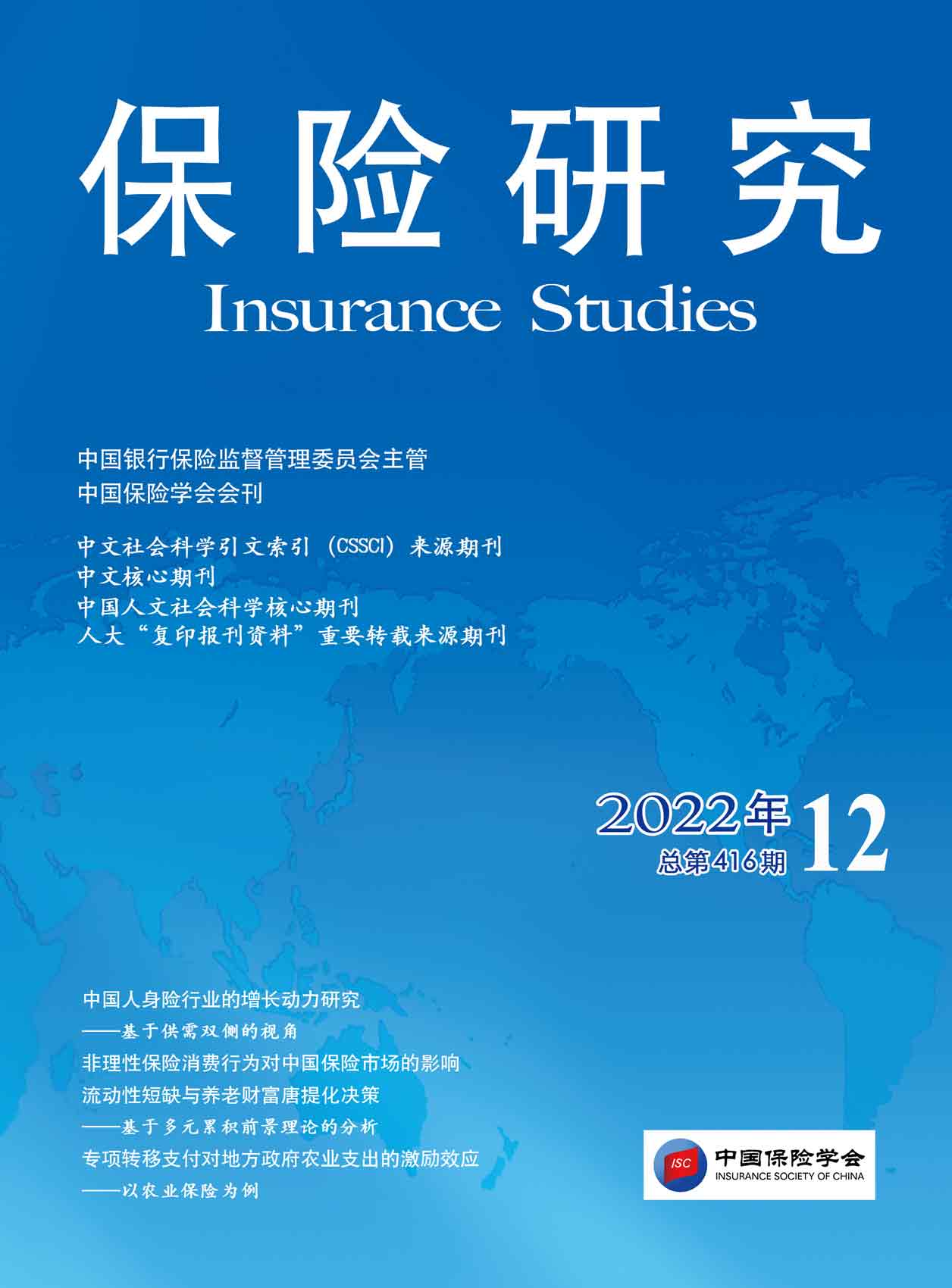
《保险研究》20221201-《中国人身险行业的增长动力研究——基于供需双侧的视角》(杨斐滟、何薇、陈滔)
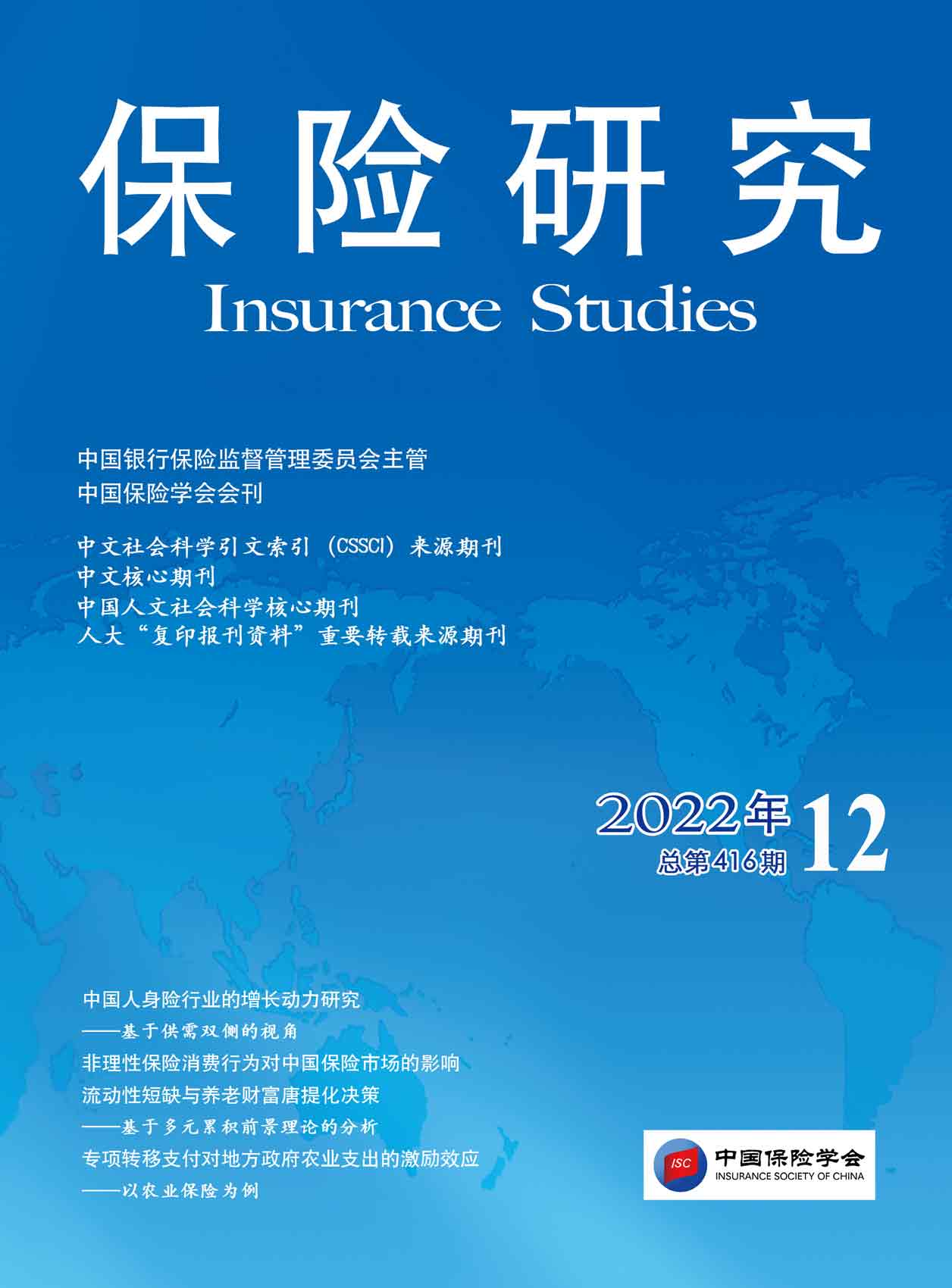
《保险研究》20221202-《非理性保险消费行为对中国保险市场的影响》(郭振华、朱少杰)
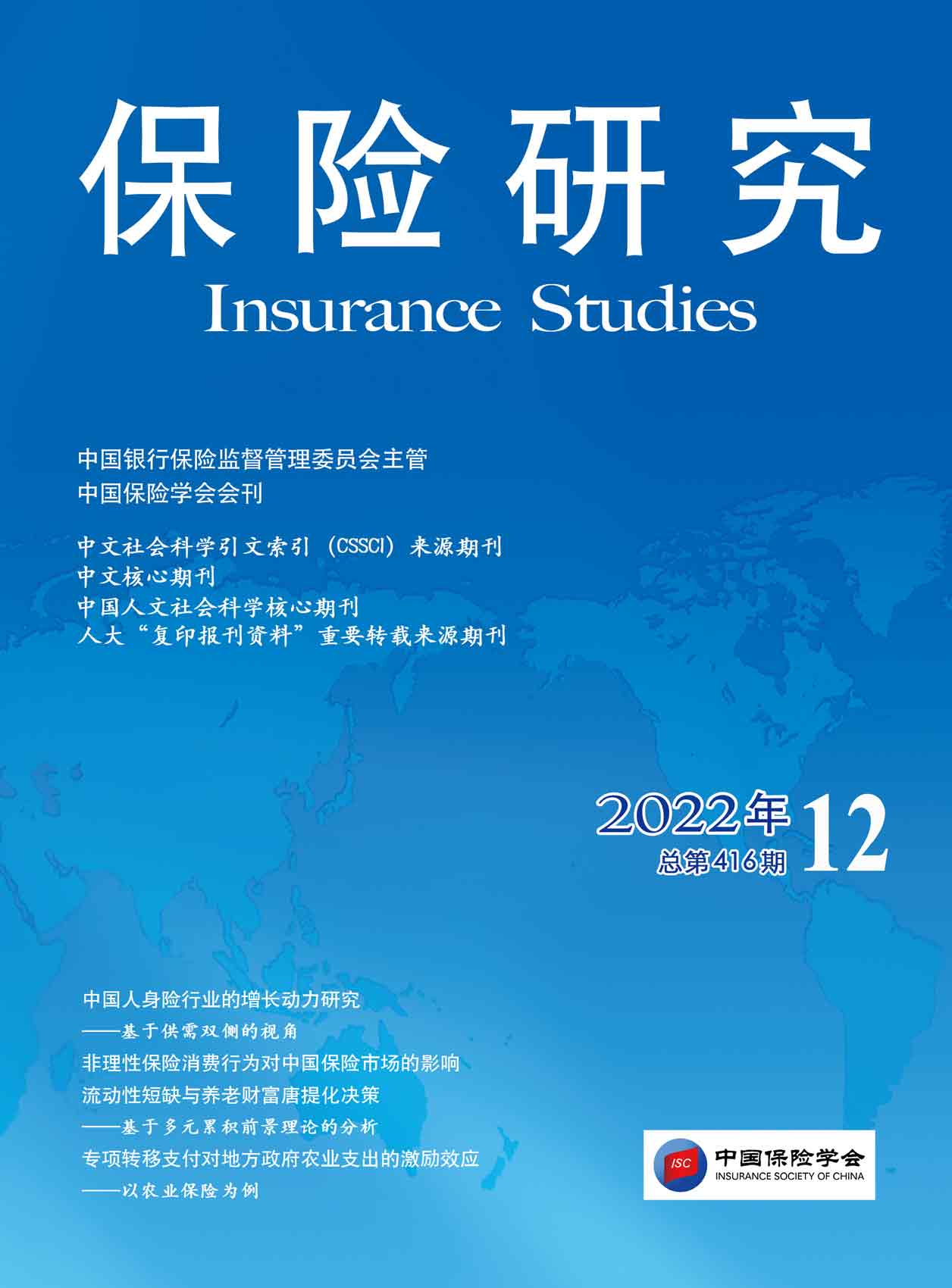
《保险研究》20221203-《流动性短缺与养老财富唐提化决策——基于多元累积前景理论的分析》(王力平、隋杰)
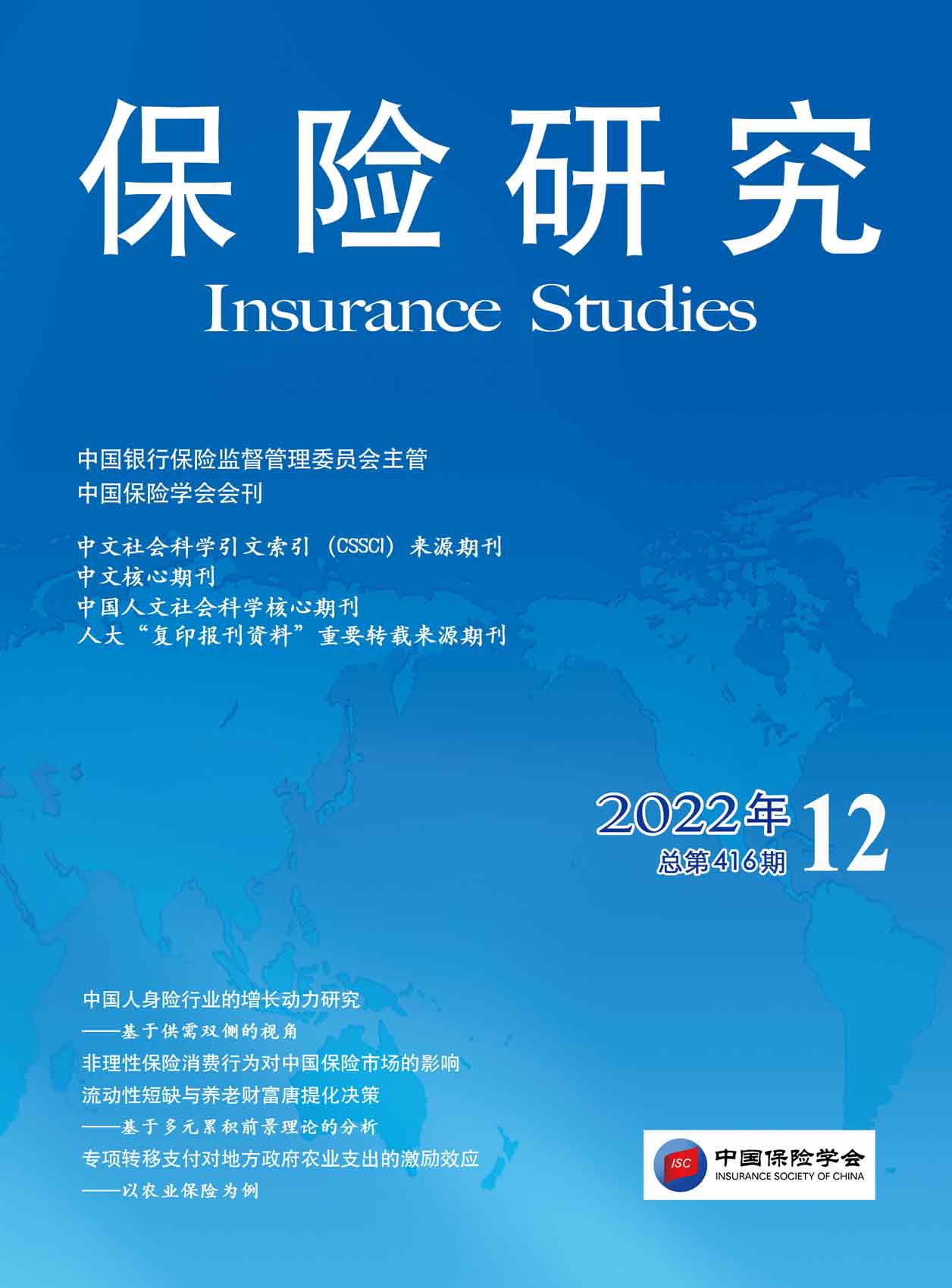
《保险研究》20221204-《专项转移支付对地方政府农业支出的激励效应——以农业保险为例》(何小伟、曹杨、刘怡鑫)
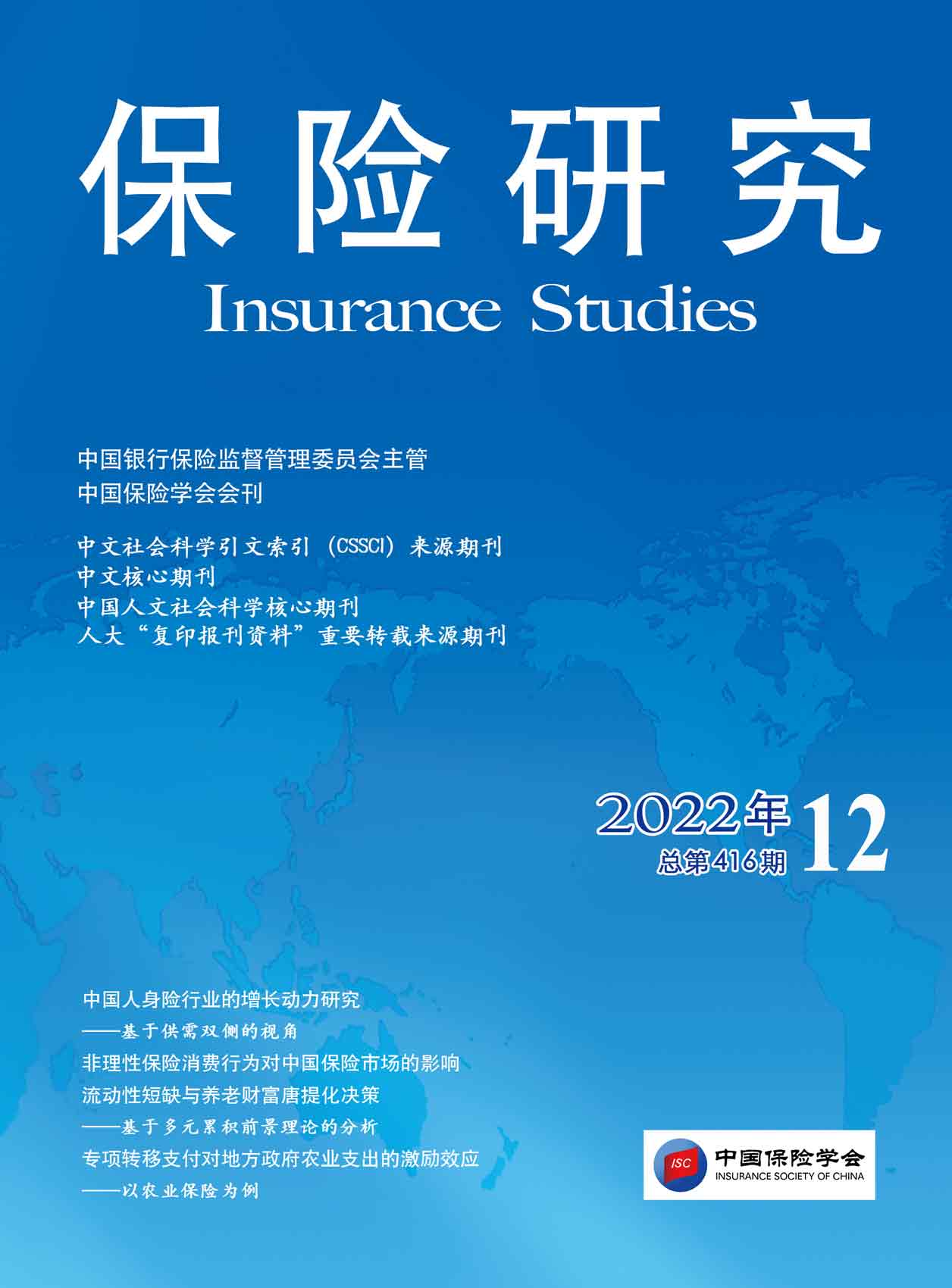
《保险研究》20221205-《生猪利润保险在生猪市场调控中的作用研究——以四川省为例》(李亚茹、张海浪)
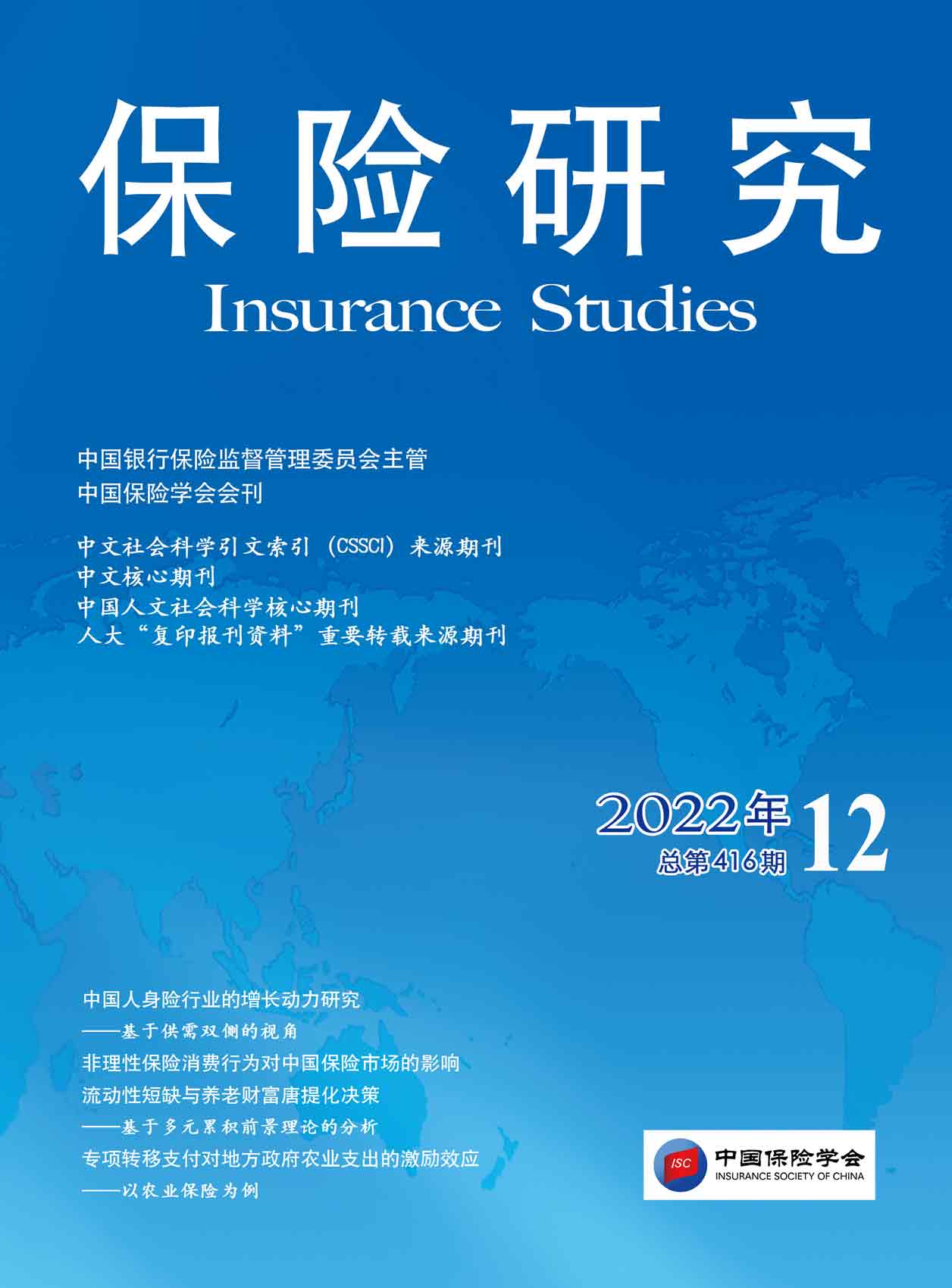
《保险研究》20221206-《主流机器学习方法识别车险欺诈效果的比较研究》(陈凯、李斌杰)
